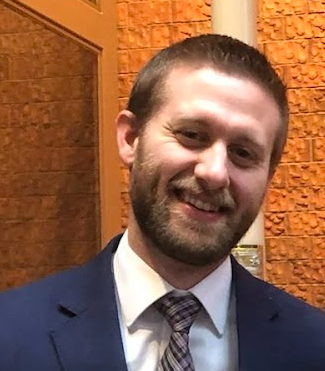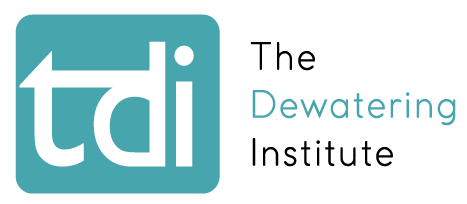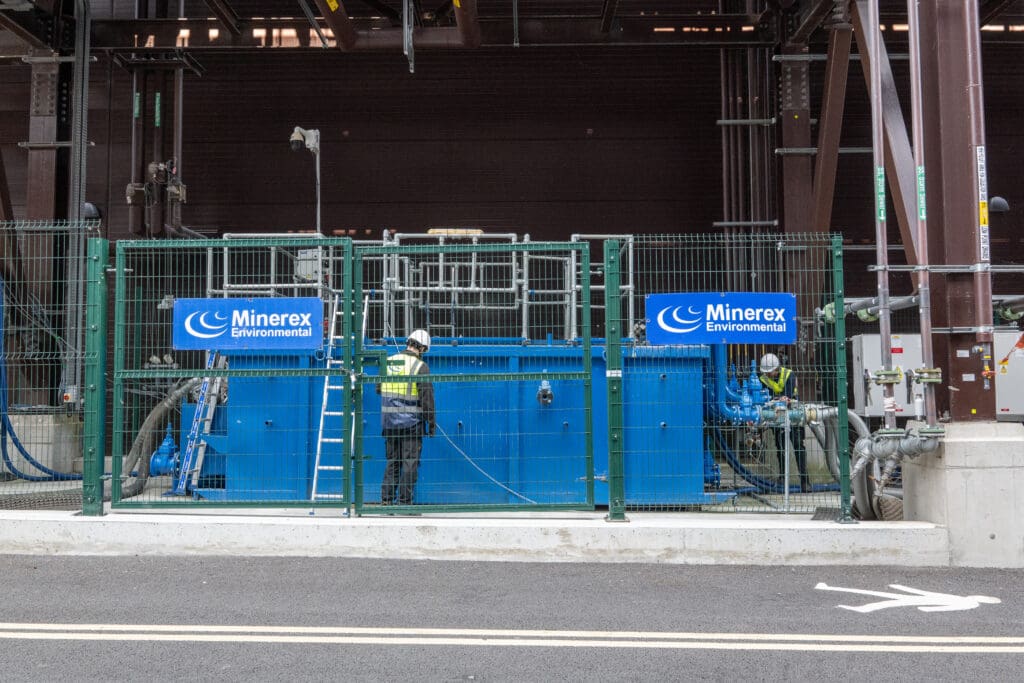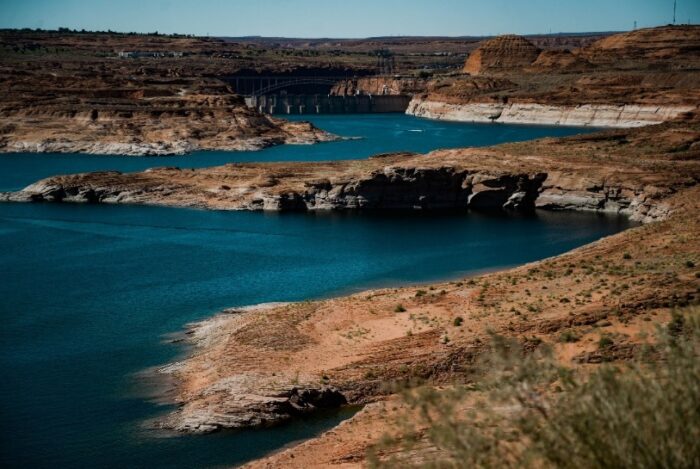As part of the The Dewatering Institute‘s commitment towards knowledge sharing, TDI is developing a series of monthly interviews of industry leaders and professionals from different parts of the world.
This month’s edition feature newly appointed TDI Advisory Council Member Mr Bronson Gerken, Vice President – Technical Services at Griffin Dewatering.
Bronson Gerken, P.G. has been in the dewatering industry for over 10 years and is the Vice President of the Technical Services department at Griffin Dewatering. He obtained his Bachelor’s in Geology from the University of Nebraska at Omaha and is a licensed geologist in the States of Kansas, Nebraska, California, Florida, North Carolina, and Washington.
Bronson has been involved in numerous groundwater control projects across the United States and currently leads a team of geologists and engineers in designing groundwater control systems to meet each of their clients needs. Being in the dewatering industry, Bronson has had the opportunity to be involved with multiple aquifer pumping tests, has become proficient at creating and understanding groundwater modeling, and has come to understand proper water well construction and design.

Can you tell us more about your work history and how you got into the dewatering industry?
I started in the dewatering industry as an intern in 2011 at the Omaha, Nebraska Griffin Dewatering location. I had very little understanding of dewatering at the time and was actually applying for a labor position (just needed a job!). The local office manager saw that I was studying geology and invited me to interview as an intern instead. I was incredibly excited about the opportunity as it combined my interests in both hydrogeology and engineering. Shortly after being hired as an intern, I also attended a summer field camp with a focus on hydrogeology which was very helpful as I began my career in dewatering.
Since then, I have worked on projects all across the United States and Canada and was given the opportunity to lead Griffin’s design team as the Vice President of Technical Services. During my tenure at Griffin, we have also added several new services which I have been able to assist with and learn about including temporary water treatment services and comprehensive permitting services.
Griffin has been a great place to work, and I have learned a tremendous amount about the dewatering industry over the 11 years I have worked here. I look forward to many more years in this industry!
What are your favourite projects that you’ve worked on in your career?
I have worked on some very interesting projects over the years. Some of my favorite types of projects are dams/levees and commercial high-rise structures. These are challenging but rewarding projects and often entail a temporary water treatment component as well. The Alexan Bus Depot (which was the 2021 TDI Treatment Project of the Year) is a great example.
Another interesting project was the dewatering of a 35ft deep tunnel at an airport which was a great example of a pressure relief project to prevent upheaval of the excavation bottom. We were able to perform a comprehensive pump test as part of our dewatering plan and ended up installing a temporary treatment system to handle hydrocarbon contaminants.
What are some of the biggest challenges you’ve seen in the industry?
Project specifications and requirements, especially when it comes to permitting, have grown more robust over the years. Keeping up with changing regulations and finding ways to meet them can be a challenge. Many times, these regulations stipulate what means/methods we must use to install a particular system or regulate where we need to discharge the water and how it must be treated. We have greatly expanded our own permitting department to help keep up with this evolving industry.
Another challenge currently is the supply chain and rising cost of materials. This is especially difficult in a bidding environment as most projects are estimated/bid several weeks/months prior to mobilization. In the current environment, costs can substantially increase over this duration or materials may become unavailable.
Finding and maintaining qualified personnel has also been a challenge recently. Our business relies on experienced people so finding ways to obtain, train, and maintain our workforce is an important task.
What do you foresee the biggest challenges within the industry in the near future?
The use of technology, especially as it relates to project plan review and telemetry systems for monitoring, has been a tremendous development. It is extremely beneficial to watch a dewatering system’s performance remotely to understand flow and drawdown so we can alert our clients of potential issues. Groundwater modeling software has also become a staple of a thorough dewatering analysis. We regularly create groundwater models during the design process to give us additional insight into how a system might perform or what impact shoring/adjacent water bodies/variable geology might have on the system design.
As stated previously, permitting and other regulations have changed over the years which has required additional testing of the dewatering effluent prior to discharge. Temporary treatment of dewatering discharge has been an increasing occurrence because of this, especially as new contaminants and regulations are encountered (i.e. PFAS).
How do you see technology playing part in the industry in the future?
Technology plays a large role in the dewatering industry, both in the initial design and in the field. Advancements in modeling software have been a tremendous help with designing complex dewatering systems and determining required flow rates. In the field, telemetry systems can allow us to monitor drawdown/flow/system performance remotely and can alert operators if something in the system is out of balance and/or fails. Advancements in these technologies and many others will continue to positively impact the dewatering industry going forward.
Why would you recommend younger generations a career in the dewatering industry?
Dewatering is a unique mixture between geology and engineering and provides a broad understanding of both fields. Groundwater is largely misunderstood, especially when it comes to construction. If construction projects go below the ground surface, groundwater control will be a necessary industry. No two projects are ever alike either, so this field offers a lot of variety and the opportunity to learn something new each day.
Interning for a dewatering company and spending some time in the field is a great way to get started in the industry. If you have an interest in both science and engineering and want a lot of variety in your work, dewatering is the perfect fit!
What aspects of the industry do you think need improving?
There is a lot of misunderstanding when it comes to groundwater and the impact that has on excavations. Additional education, such as what TDI offers, is key to helping everyone understand what dewatering is and how it positively impacts a project.
A thorough understanding of groundwater helps owners and contractors be proactive when it comes to developing a groundwater control solution rather than reactive when an unanticipated groundwater problem is encountered. It can also affect what information is obtained during the geotechnical phase of a project (ie. Piezometer installation, pumping tests, water quality, etc) which in turn provides additional insight regarding the potential groundwater impact on the excavation.
Planning a dewatering system in advance can have a tremendous impact on the schedule, budget, and risk of a project.
Why do you think TDI is important for the industry and how it can help the industry develop?
TDI provides a perfect platform for educating contractors, consultants, and engineers on the intricacies of dewatering. There are many facets to a dewatering system and the impact it can have on an excavation, from the type of system, proper well design, and even how to temporarily treat the water prior to disposal. TDI is broadening the understanding of dewatering across the entire construction industry so that projects are ultimately on-time and on budget.
What was the greatest encouragement someone gave you regarding business?
To never give up. There is always a solution to a potential problem, sometimes you just need to look at it from a different angle. This is especially true in the dewatering and water treatment industry where the answer to a problem is not always obvious right away.
What is your life motto?
Don’t expect perfection from geologists; they all have their faults!








